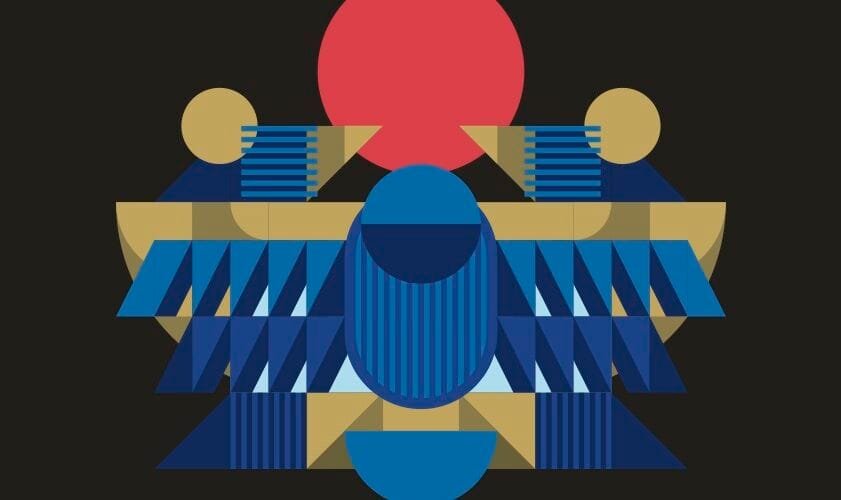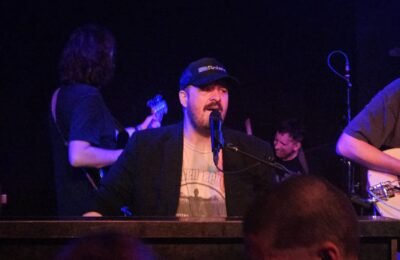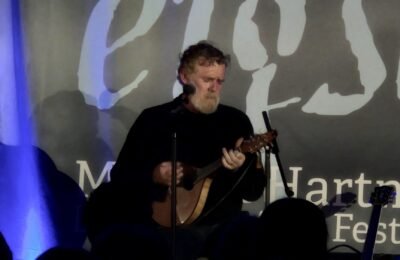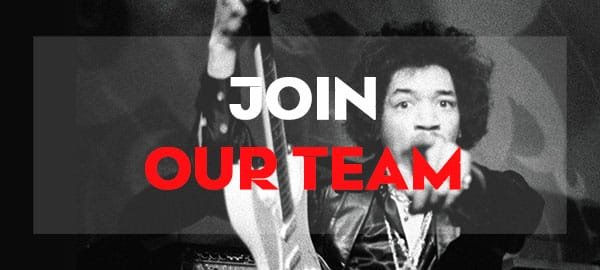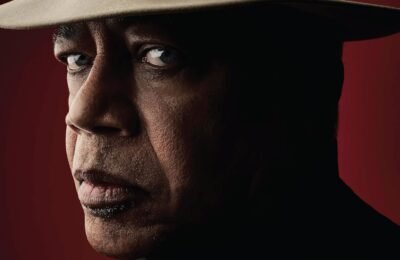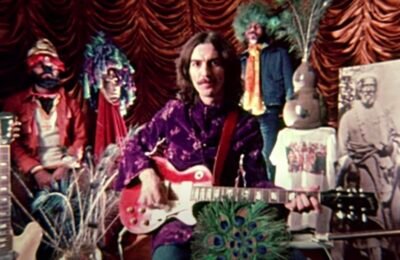The Lime Tree Theatre in Limerick recently hosted a striking event: Crash Ensemble joined forces with Chamber Choir Ireland under the direction of Gabriel Crouch to perform The Drone Mass by the late Icelandic composer Jóhann Jóhannsson.
Brave Voices, Bold Sounds
The Crash Ensemble is known for embracing groundbreaking contemporary projects and collaborating with international artists from diverse backgrounds, including Richard Reed Parry (Arcade Fire) and Bryce Dessner (The National). Chamber Choir Ireland often leans toward choral masterpieces such as Rachmaninov’s All-Night Vigil, unearthing rarely heard 14th-century treasures, and championing contemporary works by Irish composers. In this performance, the ensembles were led by Gabriel Crouch, a British conductor renowned for his adventurous and emotionally resonant choral work, both as director of Princeton University’s choral program and as the artistic leader of the early music ensemble Gallicantus.

The Alchemy of Jóhannsson
Jóhann Jóhannsson was an Icelandic composer celebrated for his haunting minimalist soundscapes that blend classical instrumentation with electronics. He received a Golden Globe for his score for The Theory of Everything (2014), and earned Academy Award nominations for Sicario (2015) and Arrival (2016). The Drone Mass was commissioned in 2014 by the American Contemporary Music Ensemble (ACME) to mark their 10th anniversary.
Jóhannsson described this work as a “contemporary oratorio” and “a distillation of a lot of influences and obsessions.” He drew inspiration from the so-called Coptic Gospel of the Egyptians, discovered in 1945. One of the source texts consisted of a seemingly meaningless series of vowels. The Drone Mass was composed for eight vocalists and a string quartet, with electronics gradually introduced into the mix. It premiered in 2015 at the Temple of Dendur in The Metropolitan Museum of Art, featuring ACME as the quartet, Roomful of Teeth as the choir, and Jóhannsson himself. It was widely acclaimed as one of his most defining works. Sadly, the composer passed away in 2018.

©Richard Bodin
A Soundscape Between Worlds
I must admit, I don’t often listen to this kind of music—let alone attend live performances. Not because I don’t like it (I do), but more from a lack of familiarity or opportunity. This time, I had the chance, and I took it.
Things didn’t start smoothly. My friend and I were supposed to meet about fifteen minutes before the show. Although, the cab driver had other plans. I arrived just in time to find Matt and take our seats before the lights dimmed. When the ensemble took the stage, I was still feeling a bit edgy. The moment the choir began to sing, the room filled with harmonious voices. The tension began to fade, letting me drift into another dimension.
I ended up somewhere between Egypt and Iceland. Although the composer drew inspiration from ancient Egyptian texts, the dissonance in the vocals evoked the guttural qualities of traditional Viking singing. The result was utterly mesmerising. Around fifteen minutes into the performance, the electronics emerged —subtle, yet grounding. It was forming a foundation over which the strings and trance-like vocals layered into an almost organic soundscape.
Around me, members of the audience closed their eyes, surrendering to a contemplative journey through a timeless, sacred space. It reminded me of a Sigur Rós performance I once attended—also Icelandic—where some concertgoers were so moved, they lay curled on the floor in foetal positions. Jóhannsson’s music is different, but it evokes the same raw, physical response.

After the Last Note
I had only listened to The Drone Mass album a couple of times before attending this performance. Experiencing it live was entirely different. The music filled the space—including the physical space occupied by the audience—resonating through us. I didn’t know Jóhannsson’s work well, but after this, I’ve begun exploring more of his music, and I can safely say I’ll be coming back to it. As the Chamber Choir’s alto said when I passed her on the way out: “His music hits me in the guts every time.”
